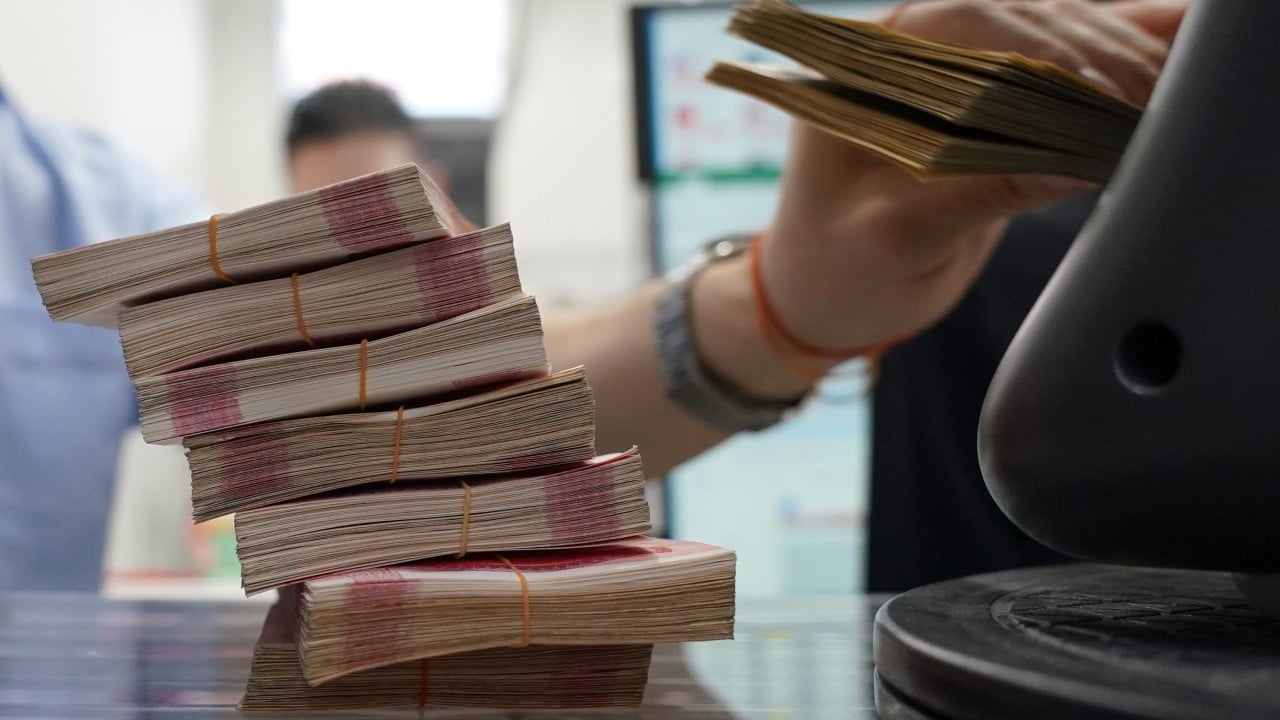China’s yuan volatility rising on interest rates, US presidential election: Goldman


The volatility of the Chinese yuan’s exchange rate with the US dollar is set to rise in the near term due to the uncertainty surrounding interest rate cuts and the presidential election, investment bank Goldman Sachs said on Friday.
Moves by the US Federal Reserve, as well as November’s election, would discourage the selling of yuan, and could lead to a temporary “overshooting” in the currency’s strength, they added.
“We think the recent yuan appreciation against the US dollar is mostly driven by external factors, especially by the changes of market pricing for Fed rate cuts (faster Fed rate cuts) and US election,” Goldman Sachs research analysts led by Xinquan Chen said in a research note.
“External factors likely remain key drivers of [the] US dollar-yuan [exchange rate] in the coming months.”
The offshore yuan has gained about 2 per cent this month in the anticipation of an interest-rate cut by the US Federal Reserve, with the currency strengthening to surpass 7.1 against the US dollar to 7.076 on Friday.
A debate between Vice-President Kamala Harris and former president Donald Trump on September 10 ahead of November’s election, if followed by an interest-rate cut by the US Federal Reserve on September 18, would catch the attention of currency traders, added Goldman Sachs.
Meanwhile, Chinese exporters are estimated by Goldman Sachs to have been hoarding around US$400 billion worth of US dollars since mid-2022, far below the US$2 trillion yuan estimated by Bloomberg, indicating a potentially smaller impact of Chinese exporters converting their funds into yuan-denominated assets.
US dollars assets remain attractive given our expectations of still-large US-China interest rate differentials and still-weak domestic sentiment
The “estimates” by Bloomberg have “likely overstated” risks to the US dollar, the research note said, noting that there is growing concern among investors over the potential impact of Chinese exporters converting foreign-currency assets into yuan-denominated assets.
“US dollar assets remain attractive given our expectations of still-large US-China interest rate differentials and still-weak domestic sentiment,” added the note, expecting the yuan to underperform against currencies of major trading partners due to weak domestic fundamentals.
HSBC said on Friday that it was “circumspect about whether there would be a tsunami” of foreign exchange sales over a short period favouring the yuan.
The bank said “positive carry” on US dollar-yuan positions and a “weak” Chinese industrial cycle, along with muted consumption growth in China, would hamper any sudden surge in sales.
Additional reporting by Mia Nulimaimaiti
Source link



